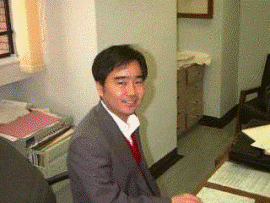
Biographical Information:
Professor Zidan Wang currently holds the position: Professor, Chair of Physics and Head of HK Institute of Quantum Science & Technology at The University of Hong Kong. He joined HKU as a faculty member in 1992 and was promoted to Professor in 2000 & Chair Professor in 2009. He, as a PI/Corresponding-author engaging in research of theoretical quantum physic, has published over 200 articles in Physical Review Letters (PRL) and Physical Review-series, including over 30 PRLs. He also received several reputable awards for his research achievements, including the two China National Natural Science Awards in 2013 and 1995, the First Class of Guangdong Provincial Natural Science Award in 2011, the First Class of Natural Science Award of China Education Commission in 2008, the Croucher Award in 2007, and the HKU Outstanding Researcher Award in 2001. He has also held various admin/academic positions, including mainly Council Chairman and President of the Hong Kong Physical Society, Head of Physics Department and Director of the Centre for Theoretical and Computational Physics at the University of Hong Kong.Abstract:
Diagnosing quantum phases based on analyses on long-range quantum resources
We propose and numerically demonstrate that the behaviors of long-range, two-site quantum resources can effectively diagnose quantum phases of some many-body systems. In an XX spin chain with symmetry-breaking quantum phase transitions, we reveal that the gradual and oscillating decay modes of quantum coherence or quantum discord, along with two-site distance, can identify two spin-liquid phases. Moreover, based on our results of spin correlation functions, we confirm the existence of long-range entanglement in the system and establish a connection between two-site entanglement and quantum phases. Furthermore, for the extended Ising model with topological phase transitions, it is also found that coherence and quantum discord behaviors can also signify topological quantum phases. Interestingly, we discover the quantum resource freezing phenomenon, where topologically protected long-range quantum resources may have potential applications in quantum information processing.Acknowledgements The work was supported by the NSFC/RGC JRS grant (RGC Grant No. N_HKU774/21), the CRF (Grant No. C6009-20G) and GRF (Grant Nos. 17310622 &17303023) of Hong Kong.
References: L.-L. Su, J. Ren, W.-L. Ma, Z. D. Wang, and Y.-K. Bai, Phys. Rev. Lett. (Submitted).